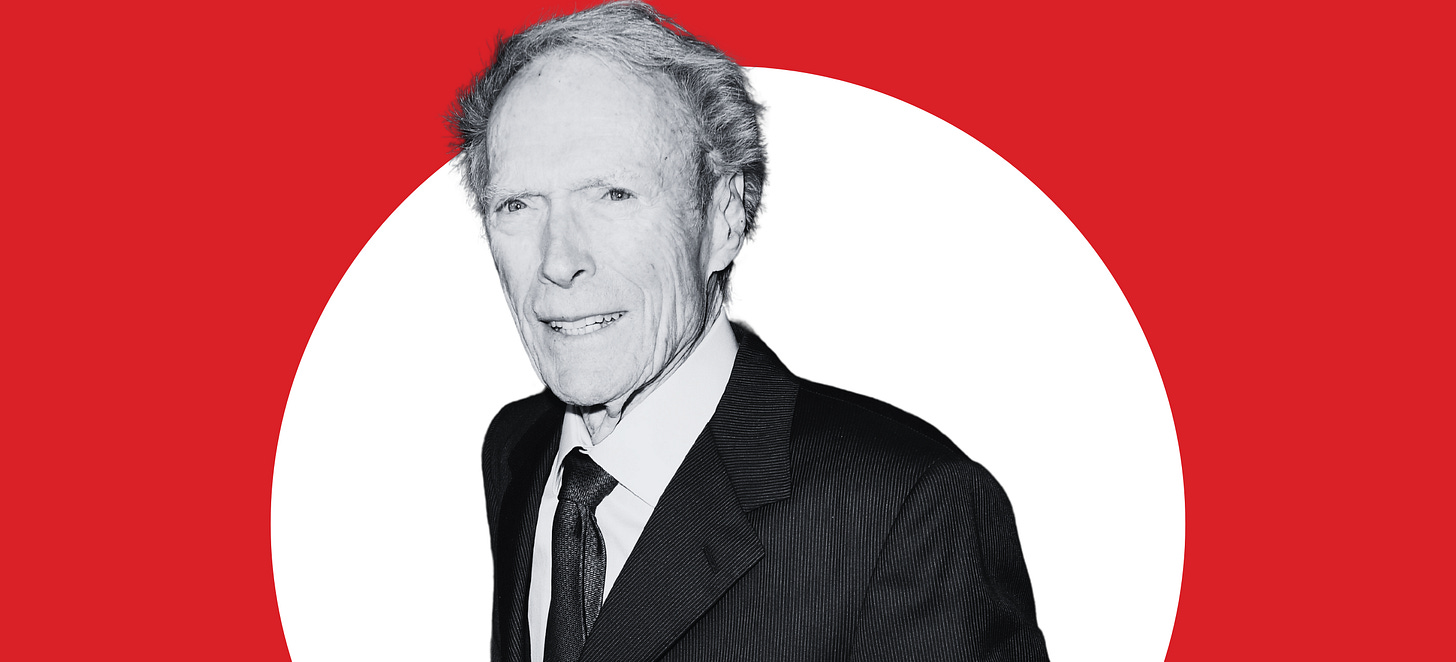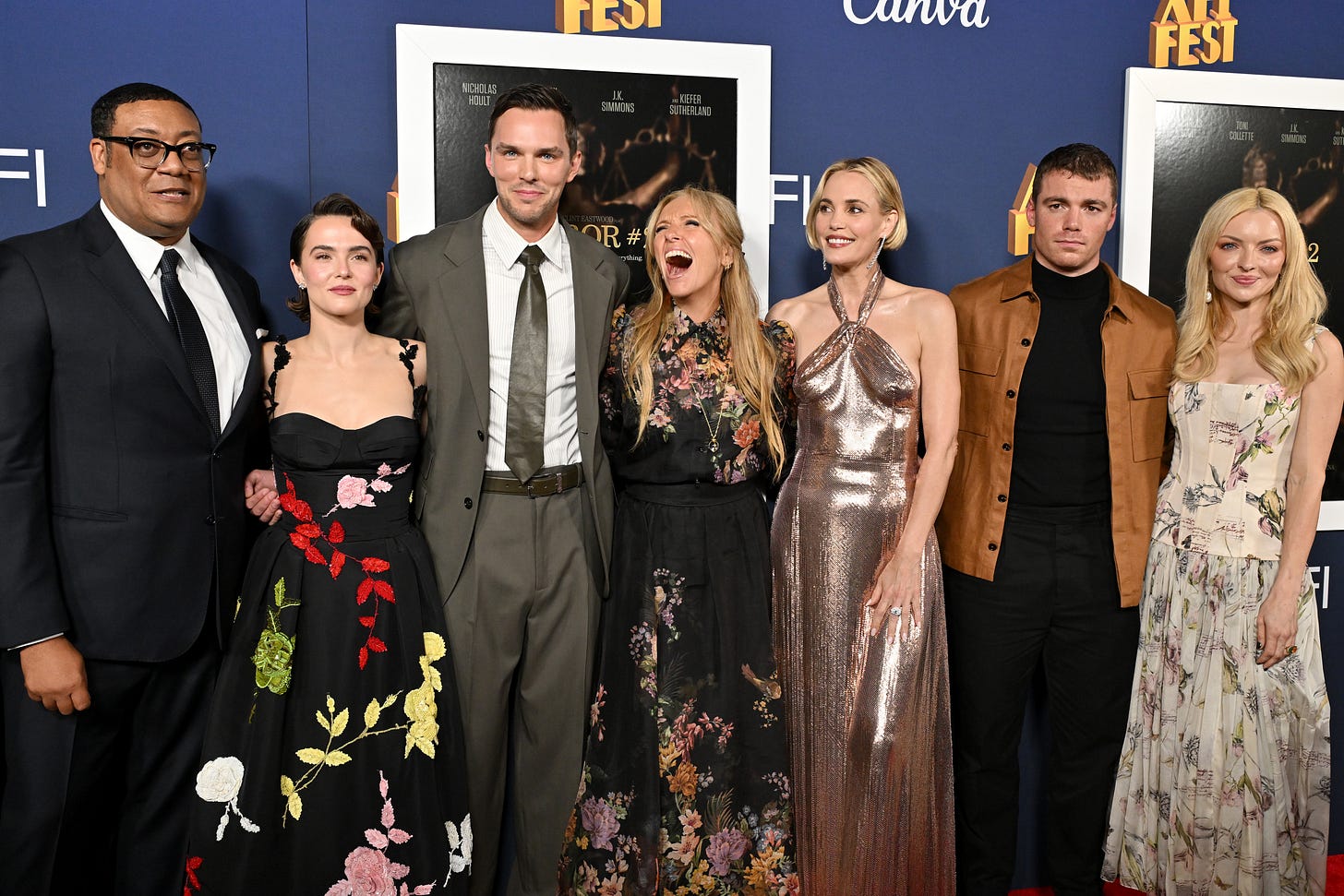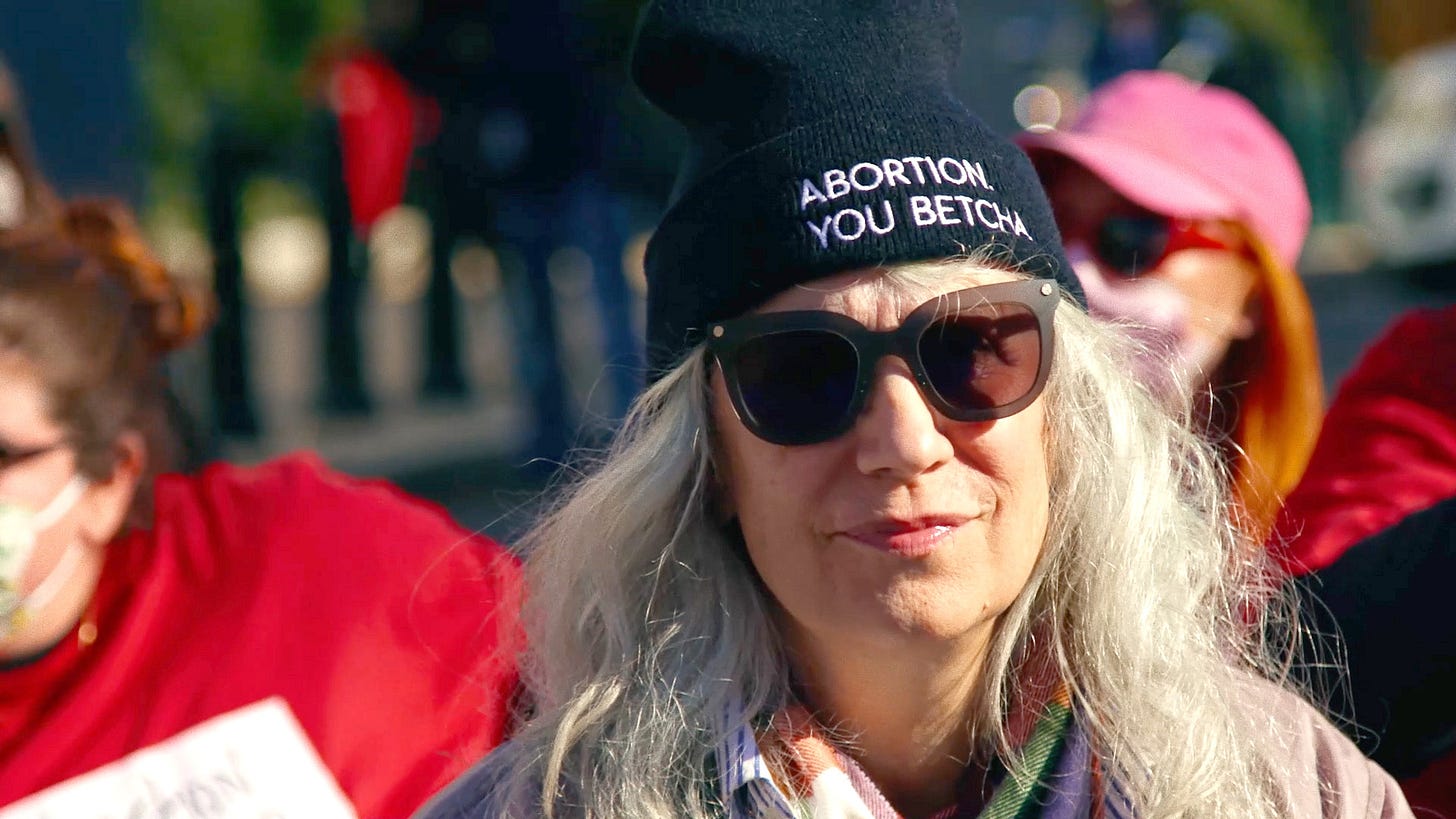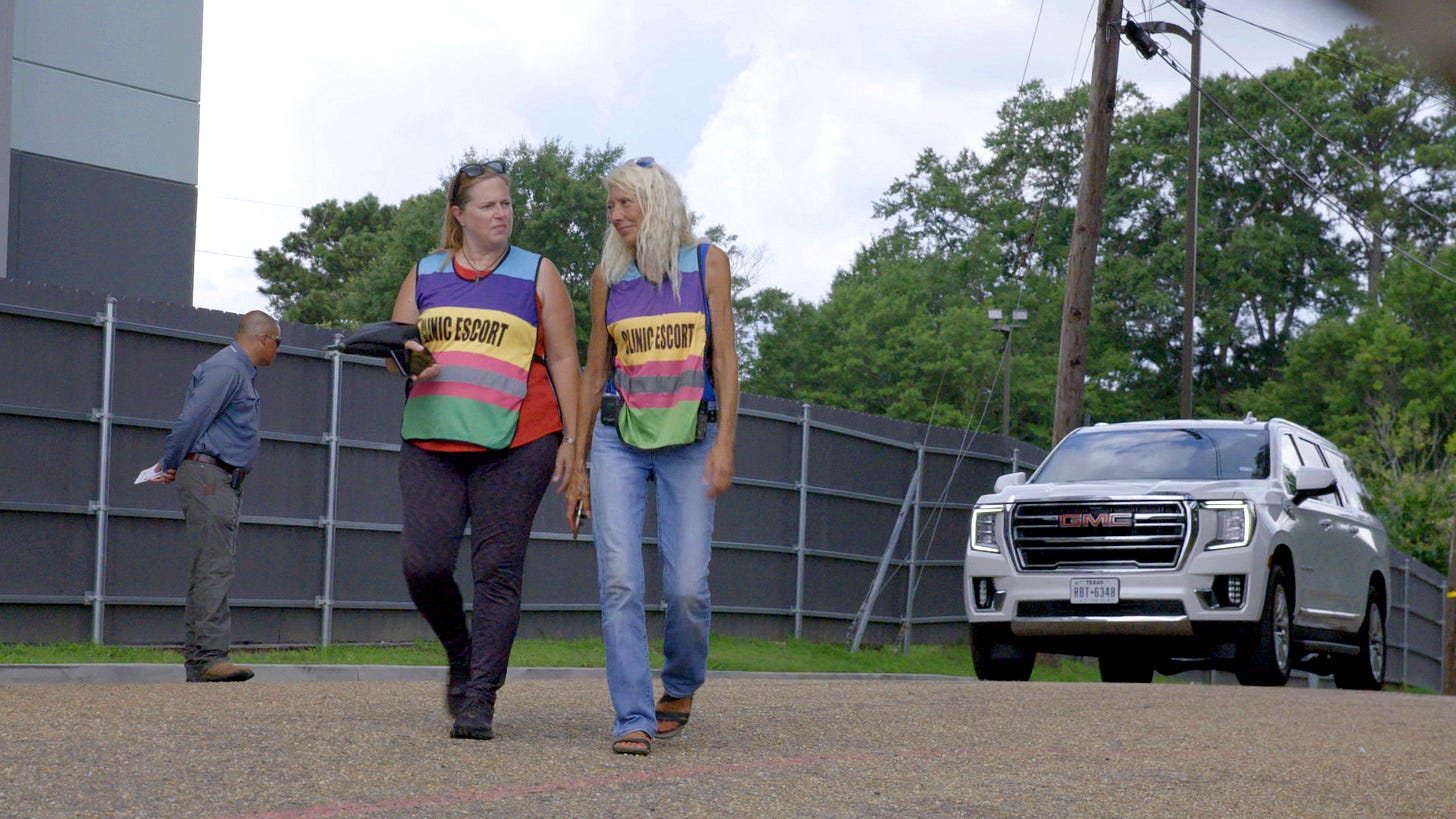The Clint Eastwood Snub. Ouch
What to make of WBD's cold shoulder? Plus: 'Daily Show' co-creator Lizz Winstead on her abortion access doc barnstorming the country

How’s everyone feeling out there? If my colleague Richard Rushfield is to be believed, you’re either in a full-blown panic or surrounded by people who are. And this isn’t the usual Hollywood panic of worrying about changes in Oscar eligibility rules or new streaming data.
One week and change from Election Day is a weird time, to say the least, to be thinking about movies. On tomorrow’s episode of the Prestige Junkie podcast, you’ll hear my guest co-host Michael Shulman and I start speculating on how the election results might affect the mood of the Oscar race before stopping ourselves. This is not what’s important right now! Go vote and then maybe you can get back to wondering whether Kieran Culkin might win an Oscar for A Real Pain.
But art and politics have always marched hand in hand, and this year is no different. Some people translate their panic and anxiety into volunteering and phone banking, and some get right back behind the camera, with both narrative features and documentaries releasing this fall that try to find a way into our loaded political moment. If moviegoers aren’t going to be able to talk about anything but the election until Nov. 5, why not make your movie part of that conversation?
Between now and Election Day, I’ll be talking to several of those filmmakers about what it takes to make art when the world is in chaos, often about the ways the world has gotten here in the first place. First up today are Lizz Winstead, the central figure of the new documentary Nobody Asked You, as well as the film’s director Ruth Leitman, who captures the nearly decade-long efforts of Winstead’s organization Abortion Access Front. Using humor, lavish costumes, cardboard cutouts of Supreme Court Justices and anything else they can think of to get people to speak frankly about abortion, Winstead — a co-creator of The Daily Show — has found new creative purpose in a cause that’s only become more urgent since Roe v. Wade was overturned in 2022.
“Being part of the solution and joining a group like ours unlocks things in your brain,” Winstead tells me. “That means that you may be somebody who’s got the next great idea, and by being in community with people who are constantly trying to raise awareness with ideas, you just never know when yours is going to be the one that people tap into.”
But first — has one of the most beloved, Oscar-winning filmmakers of the modern era been shoved out on an ice floe?
Clint’s Last Stand

For weeks, some critic friends and I have been pondering the status of Juror #2, the 40th — and, let’s face it, quite possibly final — feature from 94-year-old director Clint Eastwood. It had its world premiere at the AFI Fest in Los Angeles on Sunday night, with some negative responses but also Screen Daily writing, “The film builds to a conclusion that is unexpected but surprisingly effective in its understatement, suggesting that this veteran director can still find new ways to explore what everyday courage looks like.”
But Warner Bros., Eastwood’s longtime studio home, currently only plans to release it on 50 screens in North America, with no wider release in the works. As I discussed on the podcast a few weeks ago, every year, a late-season Clint Eastwood release is treated as a potential Oscar spoiler — but not if his studio isn’t even willing to put the film on the studio’s FYC page or in theaters.
It’s baffling treatment, even for a film originally intended for release on Max, and I’m not the only person who’s hearing that it’s a direct result of David Zaslav’s dismissive attitude toward the studio’s long-standing relationship with Eastwood. The lede of a 2022 Wall Street Journal piece, after all, was Zaslav looking at the poor box office results for Cry Macho and telling his team, “It’s not show friends, it’s show business.”
Cry Macho may have been a certified flop, opening in late 2021 when much of Eastwood’s devoted, older audience was still nervous about returning to theaters. But The Mule was a surprisingly big hit, Richard Jewell got an Oscar nomination for Kathy Bates and it hasn’t been that long since American Sniper rushed into the 2014 awards season. (Several people I know believe that if that season had gone on just a few weeks longer, Sniper would have beaten Birdman for best picture.)
As Sean McNulty pointed out in The Wakeup on Friday, there’s evidence that Warner Bros. may be interested in rebuilding some of those filmmaker relationships that were so prized in the pre-Zaslav era. There’s the check it cut for Christopher Nolan in an attempt to woo him back for his Oppenheimer follow-up (it didn’t work), and the big deal it just inked with Emerald Fennell and Margot Robbie for their Wuthering Heights adaptation, keeping Robbie and her Lucky Chap productions in the fold post-Barbie.
But if WB can shove aside Eastwood, who has made a fortune for the studio over the course of half a century, who’s to say you won’t be next?
Bringing Joy to the Fight

Some parts of the media were trying to cover the threat to abortion rights in the lead-up to Roe v. Wade being overturned in 2022, Lizz Winstead admits. But “when they did, they were terrible at it. I was literally gobsmacked traveling around the country and watching trends happen. It took the leak of the Dobbs decision to really get the media to stand up. And then they were so freaked out and they were also so woefully uninformed at how to talk about abortion.”
Knowing how to talk about abortion is one of Winstead’s specialties, and something she and the Abortion Access Front have turned into a literal art form since the group’s 2015 founding. Sometimes it’s dressing up as Anthony Comstock, the “19th-century religious fanatic and epic prude” whose namesake law has been used to restrict abortions (and which if Trump wins is expected to be used to try to implement a national abortion ban). Sometimes it’s making informative YouTube videos about Plan B and fake abortion clinics.
But as the documentary No One Asked You shows, it’s often the smaller, less-visible work of visiting regional abortion clinics, including several that were shut down following the Dobbs decision. “We are on the road so much, and we are working so intimately with providers and patients and escorts,” Winstead says. “When we are watching a physician in Missouri or in Kansas not be able to take the same route home twice when they drive home from the clinic — those stories matter.”
Since its world premiere last year at the Doc NYC festival, No One Asked You has, like the Abortion Access Front members, been on a national tour. Just last week there were regional screenings everywhere from Little Rock to San Francisco, with multiple stops in swing states at screenings co-hosted by local abortion rights groups. “We’ve been inundated with requests to bring No One Asked You all over the U.S. because the film itself is the rallying cry for this moment when it is needed most,” director Ruth Leitman says. “The messaging of the film is a more irreverent version of Kamala Harris’ message to bring joy to the fight.”
The regional screenings are continuing — you can watch No One Asked You the night before the election, in Chicago, if that’s a helpful coping mechanism — but the film is also now available for rental on Jolt TV. “It was critical to us to have the film released leading up to the election both in person and in the theater to build coalition and community,” Leitman says. “Folks in this country care deeply about abortion and want to figure out what they can do. The levity makes it easier to engage in these dark times for folks who have felt apathetic.”

As the head of a 501(c)(3) charity, Winstead has to be more circumspect when talking about the election, but emphasizes the potential power of ballot initiatives in 10 different states that could protect abortion — many of them supported by people who have taken part in Abortion Access Front’s workshops. She’s confident that “the will of the people will prevail,” but also that regardless of the election’s outcome, America will still have half of its population that is “misogynistic, racist, homophobic, transphobic, people who were given a person to advocate for those behaviors.”
That’s harsher terms than most people in Hollywood are willing to use, even anonymously, which is one of many ways that Winstead has been liberated by shifting her comedy career to activist efforts that happen entirely on her own terms. “When you don’t have network executives saying, ‘Is this going to appeal to . . .’ — I never have to hear that again,” Winstead says. “That's the joy of being part of our team. When you have an idea in a meeting and somebody says, ‘I want to do this,’ the only red tape you go through is me saying yes or no. I don't have to go to a board. I don’t have to go to anybody.”
Even when she was founding The Daily Show and Air America, Winstead says, she was making compromises on money in exchange for freedom. Now, with Abortion Access Front, she’s passing that attitude on to the next generation. “I have a proven track record of how messaging can work. So instead of asking permission, I would just rather train people up to do that work.”


